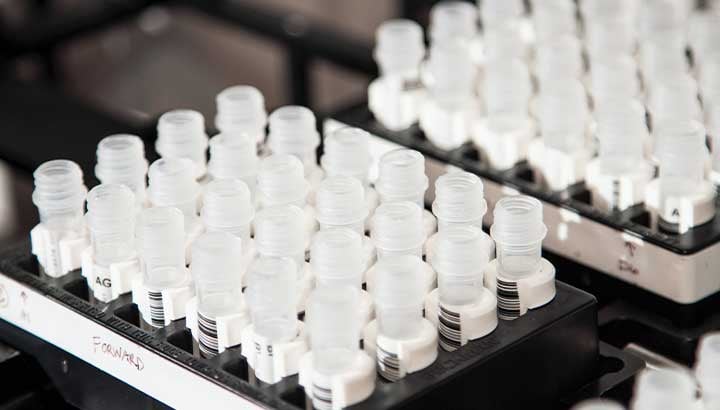

- Home
- Applications
Odour and Gas Extraction
Odour and Gas Extraction
In almost all kind of work environments, odour, gas and fumes may be generated. When the pollutants spread they can have a negative impact on both the facilities and breathing air. Extraction arms are especially suitable for capturing pollutants as close to the source as possible.
Odour, gas and fumes may be generated in practically any kind of work environment. The consequences of the exposure vary, but the exposure is invariably unhealthy in and of itself. It is easy to identify manufacturing (soldering and welding fumes) and vehicle repair shops (the sanding and painting of cars, exhaust fumes) as industries generating unhealthy fumes and particles and easy to forget for example:
- Beauty salons (use of solvents and dusted latex gloves)
- Chemical and pharmaceutical plants
- Research and museum laboratories
- School chemistry laboratories, technical workshops
- 3D printing
When the pollutants spread they can have a negative impact on both the facilities and breathing air. To maintain a safe and sustainable working environment it is important to use equipment that captures and filters the harmful emissions. The aim is to capture the particles or substances before they even reach the breathing zone or pollute the environment. The best way to control airborne contaminants in the workplace is to remove them right at source of their creation. Articulated extraction arms are the best and most cost-efficient solution for places where small extraction volumes are required within a limited area.
Extraction arms are especially suitable due to its flexibility of use. They capture the pollutants as close to the source as possible, so that a high capture rate is achieved with minimum energy use. The hazardous airborne substances are removed before they reach the breathing zone or contaminate premises and goods. By optimizing the setting and position of the extraction arm you contribute to a safer workplace for yourself and your colleagues at the same time as it doesn’t interfere with the work.
What are some of the common health effects of dust, fumes or gas exposure?
This depends on the type and degree of exposure. Industrial bakery employees, paint sprayers and those who inhale solder fumes in the electronics industry are examples of workers who are susceptible to occupational asthma; as are those inhaling airborne metalworking fluids while operating CNC machines. Occupational alveolitis is a known risk in the food processing industry, and those who work with mineral dusts risk contracting various kinds of pneumoconiosis (asbestosis from asbestos, silicosis from silica, for example). Welders can suffer from lung cancer and chronic obstructive pulmonary disease, both caused by substances found in welding fumes, such as nickel and chromium. Applications like 3D printing, laboratories and more may also produce unhealthy gases and particles and have to be extracted. What was once considered fully acceptable is now prohibited; a development that is likely to continue, with increasingly strict regulations on dust and fume exposure in the future. Substances and processes once thought of as non-carcinogenic have since been reclassified as carcinogenic. The recent reclassification of mild steel welding fume by the United Kingdom Health and Safety Executive (HSE) is indicative of a major reevaluation process of these substances and the hazards they pose, even in small quantities.
A full product range
Nederman BenchTop FX2 arms, for example, (FX2 product range) are perfect for applications where small, flexible and easy-to-use arms are required to eliminate odour, gas, smoke fumes, dust and particles. They are available in three different models to cover a wide spectrum of needs. The original model is for general applications where there is little risk of electrical discharges or corrosive contaminants. The ESD/EX model suits to applications where static electricity and sparks much be avoided. The CHEM model is ideal for extracting corrosive contaminants.
Nederman FX2 arms are supplied with a mini hood as standard – no extra extraction nozzle is required. The mini hood is also a universal interface for connecting to other hoods: the ergonomically designed combi hood, the dome hood, the flange hood and the metal hood. All of them can be attached directly to the mini hood, irrespective of arm size.
Nederman FX2 arms are available in self-assembly kits (Bench Top Extraction Kits), which include a fan, a filter, a fan speed controller, hoses, table bracket and connectors. No duct is needed. These kits provide a quick and convenient solution for creating a fume-free workplace.
Odour and fume extraction for every application
Nederman BenchTop FX2 Extraction arms are suitable for applications where small, flexible and easy-to-use arms are required to eliminate smoke, fumes or dust.
- Effective fume and dust extraction
- Low noise level and high energy efficiency
- Stable positioning with easy maneuverability
- Wide range available
- Aesthetic design
- Complete freedom when planning installation
- Maximum installation flexibility
Loading...

